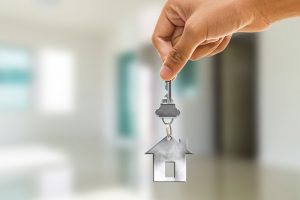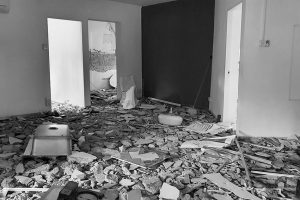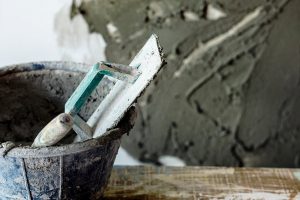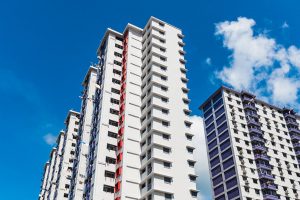 Finally got your HDB BTO? However, if you’re reading this with the context of Singapore, you probably already know that there is going to a scroll long length of rules you’ll have to abide by or else you’ll land up in big trouble.
Finally got your HDB BTO? However, if you’re reading this with the context of Singapore, you probably already know that there is going to a scroll long length of rules you’ll have to abide by or else you’ll land up in big trouble.
However, as experienced professionals in the interior renovation industry, our aim of this article is to deconstruct the list of rules which is probably overwhelming you.
If you’ve gone through an HDB renovation at least once in your life, you’ll understand that the renovation process is no easy business, but the fact that it has an arduous ability to drain the life and money out of you.
HDB renovators will understand that stepping foot into this journey can be one of the most nerve-racking renovation projects because of the many regulations you need to adhere to, as well as the limitations to space and design possibilities. Additionally, you would be surprised to know that all work done has to be done within a span of 3 months, otherwise fines would definitely be on you.
As we know SG is known to be a fine city, in every sense of the way (pun intended). Here is a brief version of the rules, which exist in today’s context.
HDB’s Shhh Factors
 Here’s a not so surprising fact : Your neighbours do not like noise.
Here’s a not so surprising fact : Your neighbours do not like noise.
Once you decide to go ahead on a renovation project, your first step is going to be to start warning off the people who live around you, so maybe they would end up hating you a little less at the end of the journey, since they’d feel like they had been warned.
The chosen contractor has to display a “Notice of Renovation” outside your HDB apartment well in advance from the date of the project starting. With that in place, you are also supposed to additionally keep your immediate Neighbours posted on noisy work and give them three days’ notice.
All noisy work should be carried out within three days and are not permitted on weekends, public holidays and eve of major public holidays. With the day’s rules in place, It’s also a rule that you are to conduct the work between 8am –6pm, since this would cause less disruption, given a typical neighbor’s family is not home between those hours.
A subset of the same states that these noisy jobs I.e work that might involve drilling and hammering, like demolition of a wall or the removal of tiles, these can only be done from 9am to 5pm on weekdays.
If you’re planning to do a bit of DIY yourself, apart from the renovation work, be aware that hammering or drilling is not allowed between the hours of 10:30pm to 7am. If you do have to, it would be advisable to knock next door and check with your neighbors first to make sure that they’d be okay with the extra noise.
HDB’s Hack It Rules!
 Hacking, this term has negative connotations in terms of technology and the internet, but the sentiments are the same when it comes to renovating your HDB’s interiors. Alterations or removal of reinforced concrete wall, columns, beams, slabs, etc are prohibited and are strict no-no’s.
Hacking, this term has negative connotations in terms of technology and the internet, but the sentiments are the same when it comes to renovating your HDB’s interiors. Alterations or removal of reinforced concrete wall, columns, beams, slabs, etc are prohibited and are strict no-no’s.
However, If you’re getting major work done in your HDB like pulling down it’s walls, your contractor will also need to submit a floor plan for approval.
Additionally, you will also need to consider any requirements related to other authorities like the Building & Construction Authority, the Ministry of Manpower, The Fire Safety and Shelter Department, National Environment Agency, Urban Redevelopment Authority, Energy Market Authority, Public Utilities Board and SP Services.
HDB’s Detailing
 The public housing system of Singapore is one of the most commendable housing facilities in the entire world. One of the reasons this is made possible is because of their niche and exquisite control over the tiniest of details.
The public housing system of Singapore is one of the most commendable housing facilities in the entire world. One of the reasons this is made possible is because of their niche and exquisite control over the tiniest of details.
For example, it’s interesting to note that the bathrooms in the unit are provided with wall and floor tiles. As these areas are designed to be wet areas, a waterproofing membrane has been laid on the cement screed before laying the floor tiles.
This is to prevent water from leaking through the flooring of the unit and affecting the interior of the Unit below. With this fact in place, all house owners are hence not allowed to replace the wall and floor tiles provided in the bathrooms for a period of three years.
House owners may lay new floor finishes over the existing floor finishes using adhesives subject to HDB’s prevailing guidelines. Excessive overloading of the floor slab with a load greater than 150kg for every meter square of floor area is prohibited as well, while the same goes for other details such as sealing up the access panel to the vent behind the kitchen cabinet or any sealing up of any other access panels.
HDB’s Are Clean Freaks
 It is inevitable that Singapore stick’s to it’s reputation of hygiene and cleanliness.
It is inevitable that Singapore stick’s to it’s reputation of hygiene and cleanliness.
Renovators are to comply with strict and high standards of cleanliness, as a rule, no debris is allowed to be placed along the common areas or staircase and all debris and surplus materials arising from the renovation works shall be disposed offsite and all surfaces must be cleaned to the satisfaction of the most stringiest Ah-Ma there is.
All common areas are to be always kept clean through the course of the renovation, all dirt and stains in common areas are to be removed immediately by the Contractor and the disposal of debris through the waste pipe or rubbish chute is strictly prohibited, the discharge of waste water, terrazzo and slime or any other building debris must not land up into the sewage system at any cost.
HDB’s Consistency Practices
 The consistent look of the exterior of all the flats are one of the most unique things about Singapore’s public housing. The interior might differ greatly from one another, but the exterior does give the country it’s pride and unique identity.
The consistent look of the exterior of all the flats are one of the most unique things about Singapore’s public housing. The interior might differ greatly from one another, but the exterior does give the country it’s pride and unique identity.
With that in mind, no house should be tarnishing that look. Hence it is a rule that painting external parts of the building (e.g. common corridor walls and ceilings) or the external wall/railing of the balcony with colour that is different from the original is not acceptable.
Similarly, replacement of existing full height windows, including 3/4 height windows and bay windows with a full height sliding door, screen and/or structure of any form to in an attempt to enclose the balcony area isn’t going to be accepted either. As a preventive measure, only grilles with approved designs are allowed to be installed.
Yes, that’s a lot of different rules and regulations to consider and this is just the apex of the iceberg. You can find a comprehensive list of regulations on the official HDB website and guidelines for renovation works.
Placing your foot on this long journey can be very overwhelming as a renovation inculcates a lot of concepts that are hard to understand and register, that is why every renovator needs a registered contractor who knows their craft and the various departments they need to be in touch with. Experience and a stand in the interior industry really does come in handy during renovation.
We wish you all the best and a happy living experience!
